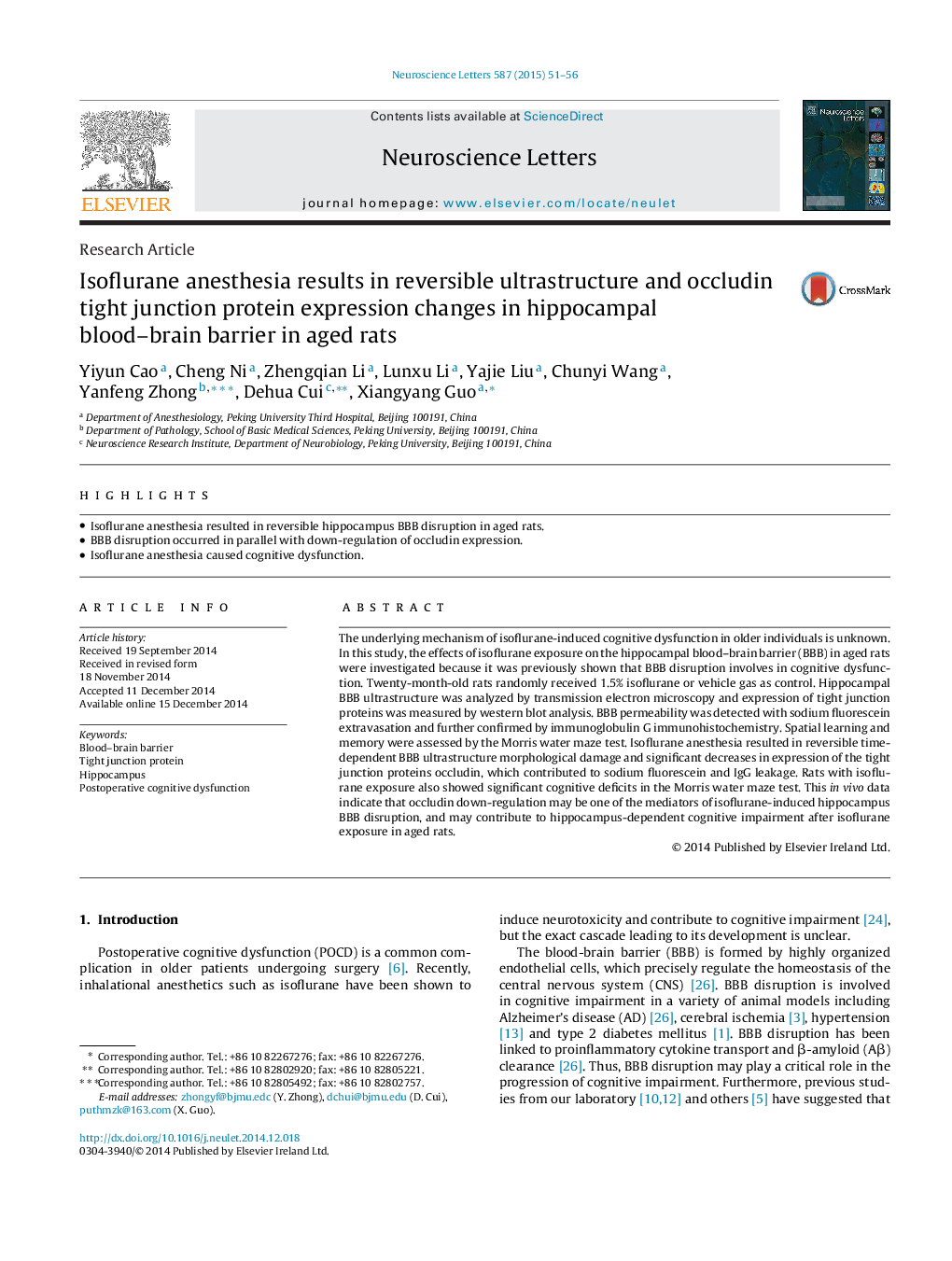| Article ID | Journal | Published Year | Pages | File Type |
|---|---|---|---|---|
| 6281225 | Neuroscience Letters | 2015 | 6 Pages |
Abstract
The underlying mechanism of isoflurane-induced cognitive dysfunction in older individuals is unknown. In this study, the effects of isoflurane exposure on the hippocampal blood-brain barrier (BBB) in aged rats were investigated because it was previously shown that BBB disruption involves in cognitive dysfunction. Twenty-month-old rats randomly received 1.5% isoflurane or vehicle gas as control. Hippocampal BBB ultrastructure was analyzed by transmission electron microscopy and expression of tight junction proteins was measured by western blot analysis. BBB permeability was detected with sodium fluorescein extravasation and further confirmed by immunoglobulin G immunohistochemistry. Spatial learning and memory were assessed by the Morris water maze test. Isoflurane anesthesia resulted in reversible time-dependent BBB ultrastructure morphological damage and significant decreases in expression of the tight junction proteins occludin, which contributed to sodium fluorescein and IgG leakage. Rats with isoflurane exposure also showed significant cognitive deficits in the Morris water maze test. This in vivo data indicate that occludin down-regulation may be one of the mediators of isoflurane-induced hippocampus BBB disruption, and may contribute to hippocampus-dependent cognitive impairment after isoflurane exposure in aged rats.
Related Topics
Life Sciences
Neuroscience
Neuroscience (General)
Authors
Yiyun Cao, Cheng Ni, Zhengqian Li, Lunxu Li, Yajie Liu, Chunyi Wang, Yanfeng Zhong, Dehua Cui, Xiangyang Guo,
